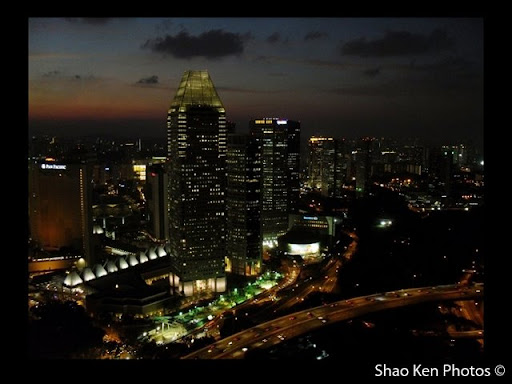Hey guys, just want some tips regarding nite shots. was in town just now and shooting randomly, and i realize the main prob is 1)hand shake but also 2)the rite exposure.
cheers
cheers
What you need to cure your problems is a fast lens with max aperture of 1.4 to 1.8 to 2.8 and with built in Vibration mitigation such as VR, VC, IS, etc or the other cheapest way is USE A TRIPOD:bsmilie:
if you are lazy to use a tripod like ME, den switch to manual mode, no need flash, set ss to say, 1/20, open up ur aperture wide and boost ur ISO say 800 or 1200. works wonderfully! (if u dnt mind the noise that is...hehehe)
haha cheers for all the replies guys. my friend did recommend me slow shutter speed and more exposure, but somewhat with handheld, the shakes are pretty bad. and using the flash just overexpose everything...sian
haha cheers for all the replies guys. my friend did recommend me slow shutter speed and more exposure, but somewhat with handheld, the shakes are pretty bad. and using the flash just overexpose everything...sian
Haha. Nightshots are really challenging.
You need a tripod stand to keep it stable. The best mode to use would be Manual. The aperture should be set to allow as much light to enter as possible which means to select the smallest F number. Shutter speed should normally be 1 Second, however you will need some experiment as 1 Second may not give you the ideal picture you wanted it to be. If the picture is too bright, set it to about half a second or faster. If the picture is too dark, set it to about 2 Seconds. Then again, no matter how stable your camera is, when you press it with your finger it will cause camera shake again so the best way is to use self-timer. Talking about camera shake, cameras with Anti-shake or when you're using a lens with Optical Stabilizer may still capture blurry images! They might help in normal situations, but not night situation, so turn them off.
The above statement can be found at:
http://www.youtube.com/watch?v=scTkyKARqEA&NR=1&feature=fvwp
All the best!

thanks for all the tips guys. here is my flickr link
http://www.flickr.com/photos/sleepyboiwang/ pls feel free to critique!
the main solution isHey guys, just want some tips regarding nite shots. was in town just now and shooting randomly, and i realize the main prob is 1)hand shake but also 2)the rite exposure.
cheers
Handheld night shots are possible with high ISO (ISO 1600) and steady hands.
I shot this pic (below) handheld, ISO 1600, 1/15sec.

Most of us long exposure junkies usually stay in F8-F16 range. Unless in special circumstances. Any aperture smaller than F16, we will usually get small aperture diffraction.
And remember to turn off your Long Exposure NR, if not it will process it as long as it takes the shot. 45 second exposure will take an additional 45s to do LE NR. Imagine that happening if you have a 5min or 10min Long Exposure.

